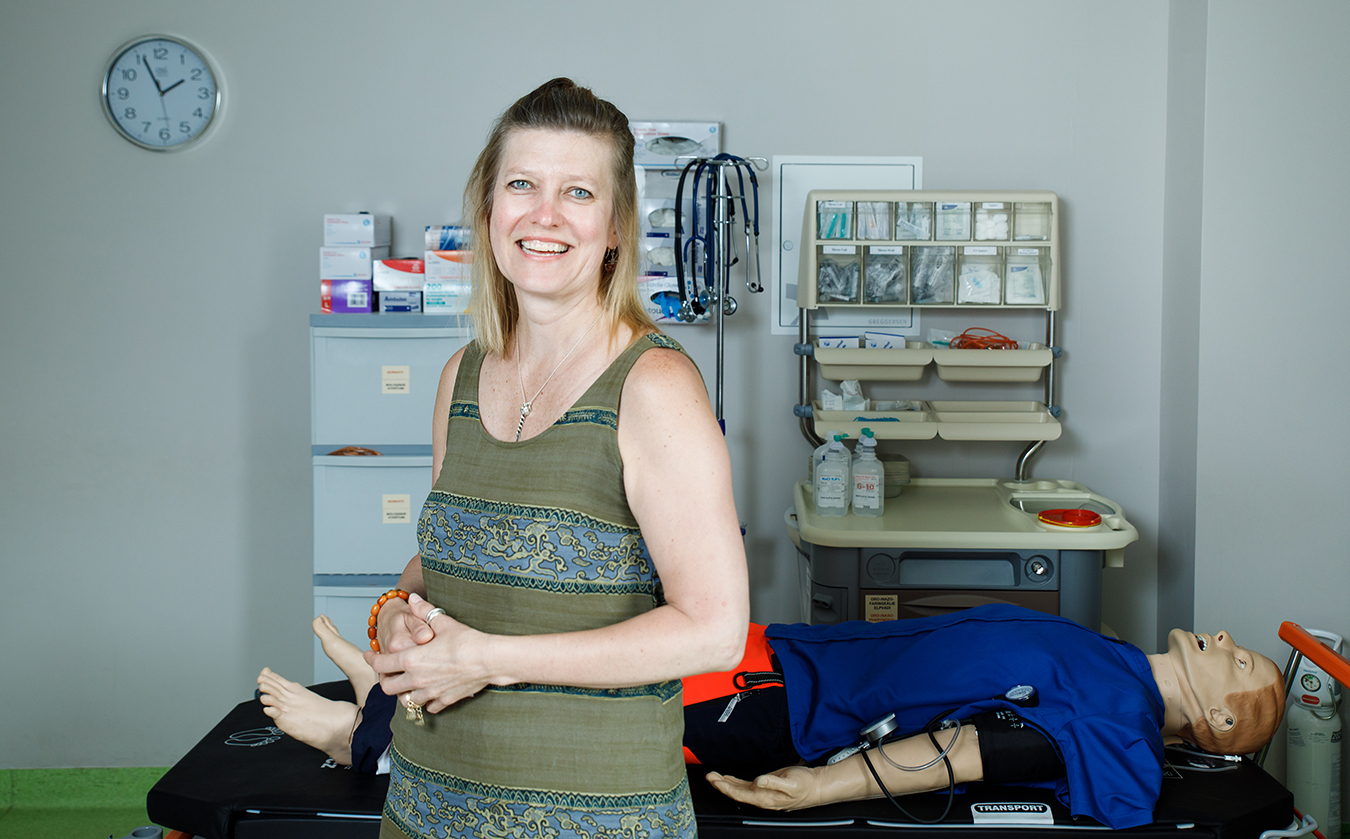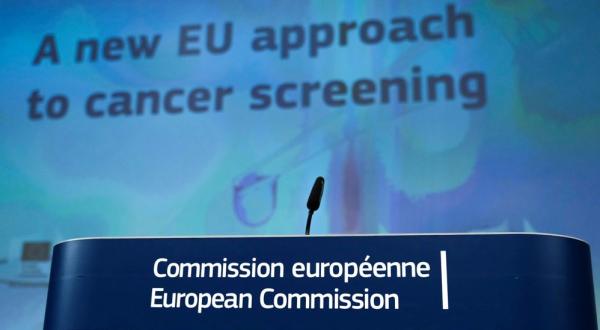Visiting lecturer Baiba Zariņš shares her experience from Canada with nursing students at RSU
When Baiba Zariņš, a Latvian nurse residing in Canada, travelled from Toronto to Riga last autumn to participate in the conference Society. Health. Welfare., she didn’t realise that this would turn into a long-term relationship. In less than a year the Manager of the Nursing Programme at Nipissing University familiarised herself with Rīga Stradiņš University (RSU) as a visiting lecturer at the doctoral students’ summer school and as a Chairperson of the Examination Board for aspiring Master’s graduates. The increasing presence of international lecturers is one of the strategic goals of RSU: in 2018 the number of visiting lecturers and visiting researchers at the University made up 16% of the academic staff. It is most often lecturers and researchers from Sweden, Italy, Great Britain and Germany who choose to come to RSU, but in recent years more lecturers from Canada have chosen to come here.

Baiba Zariņš visiting the RSU Medical Education Technology Centre
Nipissing University is situated on a picturesque lake shore a four-hour drive north of Toronto. This is a small university for Canada with just over 5,000 students, but this has not prevented it from becoming a strategic innovator within the field of nursing. To address the shortage of nurses in the country, and to offer a seamless transition between academic theoretical knowledge and evidence informed practice care, Nipissing University, in collaboration with several academic health care delivery agencies in Toronto, introduced a new nursing baccalaureate level program – the Scholar Practitioner Program – in 2011. This program differs in content and form from traditional course-based programs, as it attracts professionals of any field as long as they already possess an undergraduate university degree in any discipline. ‘In addition to a previous academic degree, a student must demonstrate a strong interest in the field of health care without which it is very difficult to become immersed within the complicated world of nursing in just two years,’ says Zariņš. The studies have a very intense pace – students combine academic study courses with a nine-week practicum placement each semester. There is no hierarchy in the programme which means that both students and lecturers are in themselves “co-learners” and learn from one another. ‘Of course, there are competences that students, as co-learners, must achieve in order to graduate the programme, but the journey they take to achieve these goals is largely driven by the learners themselves,’ emphasises Zariņš. She has also conducted a research study on the results of this alternative methodology concluding that program graduates appear to exhibit a high level of motivation. These types of learners delve into details more which as a result benefits not only themselves but also their patients.
Zariņš has been impressed by the knowledge of the nursing students at RSU. ‘Students here have received outstanding training. They are curious and don’t stop asking questions: How? Why? Could it not be otherwise? In addition to the technological possibilities, the simulation lab equipment and mannequins available to students in Riga has made a tremendous impression on me,’ says Zariņš exploring a resuscitation simulator before being photographed. Nursing studies at RSU have experienced a rapid growth in recent years – besides programmes in Latvian, nursing can be studied also in English, moreover RSU nursing studies are available not only in Riga and Liepāja, but also in Daugavpils where Zariņš travelled to during the course of her visit to chair the scheduled Master’s level candidate final defence presentations. At the same time other major changes are taking place with the aim of increasing the prestige of the profession, the mobility of nurses and their competitiveness in the labour market. The content of nursing education and vocational standards in Latvia have been changing, too. Eva Cela, the Head of the Nursing study programme at RSU, points out that these changes are significant because the number of nurses in Latvia per 100 000 citizens is 42% lower than the EU average, and Latvia takes the last place in Europe in this respect.
The percentage of nurses to population needs is also a problem in Canada, admits Zariņš, sharing that professional and academic organisations alike are actively thinking about how to increase interest and licensing in the profession. The various nursing programmes at Nipissing University provide many options to pursue the study of nursing. They not only attract newly graduated secondary school students to study nursing, but, also mature professionals from other fields who see nursing as their potential profession through the Scholar-Practitioner Program. In addition, there is a growing percentage of males represented in the demographics of both applicants and graduates within nursing in recent years.
Another example of innovation within nursing in Ontario and Canada are the recently introduced Nurse Practitioner-led clinics at which advanced trained and licensed registered nurses are independently able to diagnose, refer patients for tests, interpret results, prescribe medication or perform certain procedures, alongside other healthcare professionals. Zariņš believes that through this advanced practice role, the broader nursing profession is better utilised to respond to the health care needs of patients and communities in regards to health care promotion and treatment.
The visiting lecturer is familiar with the situation from both perspectives having worked at the University Health Network Hospital in Toronto for over 30 years. ‘I could retire soon and be at peace with myself, but feel an obligation to share my experiences and continue to contribute to the profession,’ Zariņš says adding that her father, who emigrated from Latvia during the Second World War, taught her not only to acquire knowledge, but also to share it. As a child Zariņš and her sister set up a school for teddy bears and dolls, but sometimes the “students” fell ill and then the school would evolve into a playtime hospital. ‘So my childhood dreams of working as a teacher or a medical professional have been simultaneously fulfilled,’ she laughs, adding that although she has not yet bought her next ticket to Riga, there is no doubt that she hopes to plan a return trip to Riga very soon.
Related news
 From Data Harmonisation to Artificial Intelligence: EUCanScreen Modernises Cancer Screening Across EuropePublic Health, International Cooperation
From Data Harmonisation to Artificial Intelligence: EUCanScreen Modernises Cancer Screening Across EuropePublic Health, International Cooperation


